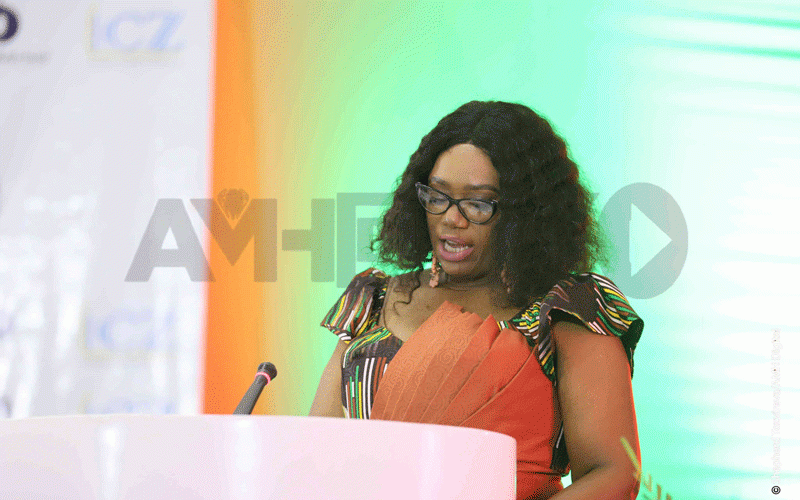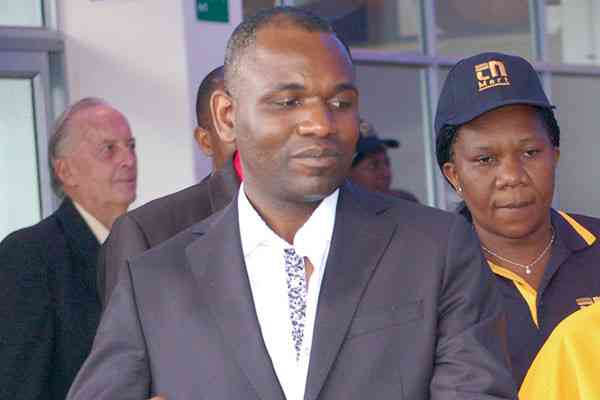
THE suspension of four Zimbabwe Broadcasting Corporation (ZBC) managers on allegations of sexual harassment hit media headlines recently, triggering a fierce debate, particularly on social media.
Reports from ZBC headquarters — Pockets Hill — suggest that more female media personalities are exposing the sexual torment over the years.
Time will tell whether the actions of the brave female broadcasters will trigger a Zimbabwean #MeToo movement.
“Me Too” was initially used on social media in 2006, on Myspace by a sexual assault survivor and activist Tarana Burke.
The #MeToo was used in 2017 to express the grave magnitude of the problem.
In 2017, the American media was overflowing with headlines about predatory sexual behaviour of male Hollywood and TV celebrities.
In 2016, multiple women made allegations of sexual harassment against then American presidential candidate Donald Trump.
Since then, there have been sexual harassment allegations of dozens of well-known Americans.
- Letters: Democratise natural resource governance
- Underpaid ZBC workers seek ED’s intervention
- Don't 'tag' journalists based on their media house
- Act on violence, discrimination against journalists
Keep Reading
In Zimbabwe, the recent media reports of the four managers, who are accused of demanding sex from subordinates have brought to the fore how pervasive sexual harassment is, not just in the media industry but across all sectors.
Sexual harassment is a form of violence often ignored, triavialised, or normalised.
Women, particularly those in the media industry, are vulnerable to sexual harassment due to their precarious working conditions, fear and social stigma.
As someone who is very passionate about fighting this endemic social issue, we can no longer allow it to go unchecked. Sexual harassment has been cited as one of the reasons deterring female journalists from joining mainstream media and staying long in the newsrooms.
Because of sexual harassment and the trauma that comes with it, many female journalists have been forced to abandon their careers.
What is happening in the media mirrors Zimbabwe’s society.
Sexual harassment is an insidious problem that has pervaded every corner of society.
For far too long, we have ignored, and downplayed this form of violence, perpetuating a culture of silence and suffering.
It is high time we shine a light on this dark issue and chart a path forward to curb sexual harassment.
The women at ZBC are torch-bearers to other young women and girls. I salute them for standing up to this evil practice. They have stood firm and strong despite being trolled. I was deeply saddened by the attacks on social media. Shameful indeed! Such distasteful attacks deter women from reporting. They bully women into silence.
Sexual harassment in the Zimbabwean media has often gone unchecked.
Journalists have suffered in silence for fear of repercussions on their careers.
Perpetrators have been allowed to act with impunity. This has not only stifled the potential of talented individuals but it has also undermined the integrity of the media itself.
Sexual harassment and misconduct lurks in the shadows, making the daily grind unbearable for female employees everywhere.
Victims are forced to choose between their dignity and livelihoods.
Often they sacrifice their dignity to preserve their livelihood. This creates a toxic work environment.
Sexual harassment is no longer an issue that we can sweep under the rug.
It affects the mental and emotional well-being of women. It destroys careers and lives. It has an impact on the country’s socio-economic state.
It is time for Zimbabwe to confront this issue head-on, empower survivors to speak without fear, and create a culture of respect and equality.
A statement yesterday by the Zimbabwe Media Commission does the opposite.
It gives unnecessary ammunition to perpetrators.
ZMC stated that: “Further, it should be noted that the ZMC will not tolerate false reporting of sexual misconduct and harassment in the media fraternity.
“Should it be found that an individual has falsely accused another of sexual harassment, disciplinary proceedings are to be immediately held, paving the way for the suspension of the individual propagating falsehoods...”
Very disappointing!
It is essential that we address the harmful narratives on social media. Victims are blamed for the way they dress, talk or behave. Such victim-blaming perpetuates a culture where survivors are afraid to report, fearing that they will be further shamed and ostracized.
It is disgraceful.
We cannot allow sexual harassment to fester in the shadows, causing immense harm to individuals and undermining the principles of respect, dignity and equality.











